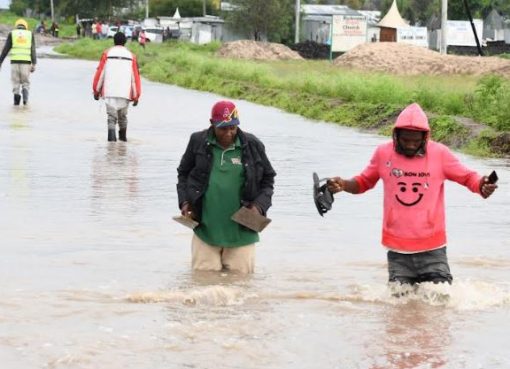The government has expressed concerns over the slow progress of construction works at 15,000-acre Bachuma Livestock Export Processing Zone (LEPZ) in Taita-Taveta County which has delayed Kenya’s entry into international livestock and beef market.
The LEPZ project is one of the government’s flagship projects targeting livestock sector but has not taken off since it was started in 2015.
Cassian Munyao, the officer-in-charge of Bachuma, said that several aspects of the project including construction of gatehouses, fences, canopies for animals, drilling of boreholes and renovation of a laboratory were almost complete.
While giving a brief of the project to County Development Implementation Coordination Committee on Tuesday, Munyao added that over Sh. 170 million has been paid to the contractor to date for the project.
He disclosed that during the first phase part of the project which was valued at Sh. 114 million, the contractor was paid Sh. 91.4 million. For the second phase which was valued to Sh. 248 million, the government has already coughed Sh.80 million.
“The contractor has received over Sh.170 million since the project started,” he noted.
However, the County Commissioner (CC), Rhoda Onyancha expressed her concerns over the progress of the works at the facility.
She said the government should get value for its investment noting that the project was designed to be a game-charger for livestock industry in Kenya. She pointed out the progress was slow with a section of works being termed as substandard.
Ms. Onyancha noted that an elephant trench dug around the project to deter jumbos from encroaching into the land was not effective as a herd of elephants had breached a section of the fence after crossing over a shallow part of the trench.
“The contractor needs to hasten and complete this project while ensuring the works adhere to the set standards,” she said.
Currently, only 200-acres is being developed with a livestock holding capacity of between 7,500 and 9,000 heads of cattle.
However, once the 15,000-acre is fully utilized, the facility can accommodate up to 100,000 head of cattle.
According to project design, the Bachuma LEPZ would be the official final holding grounds for all animals from Kenya that are destined for the European and Middle East markets. The project will have multiple screening zones, loading bays, emergency slaughter houses, laboratories and incinerators.
The project is also poised to extensively use the Standard Gauge Railway (SGR) to receive livestock from various parts of the country and deliver them to Miritini Holding grounds in Mombasa County before being loaded into ships.
However, the elusive date of completion of the project has turned the government’s attention to one of the project that will not only turn Kenya into a net exporter of beef but is also central to achieving of Big 4 Agenda in terms of enhancing food security.
In 2016, then Cabinet Secretary for Agriculture and Livestock, Willy Bett toured the facility to check on its progress, noting the project was past its completion date saying the government would allocate Sh. 0.5 billion to complete the LEPZ.
In 2018, Bett’s successor and current CS for the Ministry, Mwangi Kiunjuri toured the Bachuma facility and expressed his dismay at the work’s slow progress. He disclosed that a Djiboutian investor was willing to take over the project, complete the pending works and operationalize the facility.
“The completion works are long overdue. The government needs to have started using this facility,” the CS had said.
Despite such visits, the project is yet to receive its first batch of livestock raising concerns even from the highest
level of government. In January this year, President Uhuru Kenyatta made a discreet visit to the facility accompanied by Chief of Defense Forces, General Samson Mwathethe.
The private visit, sources hinted, was a pointer to the crucial interest the LEPZ project and its economic significance has to the head of state.
The Marungu MCA, Paul Waweru, where the project is located, said the Bachuma LEPZ was a national project and its delay had prompted the president to visit the site.
“Kenya ought to have started exporting livestock in large scale but the project is not complete. It’s a concern for all
people,” he said.
The CC said that the county development committee would escalate the issue further and engage all relevant stakeholders to establish why the project has delayed.
According to Inter-Governmental Authority on Development (IGAD), Kenya has the largest third largest herd in the region but is yet to exploit her livestock export potential.
By Wagema Mwangi


